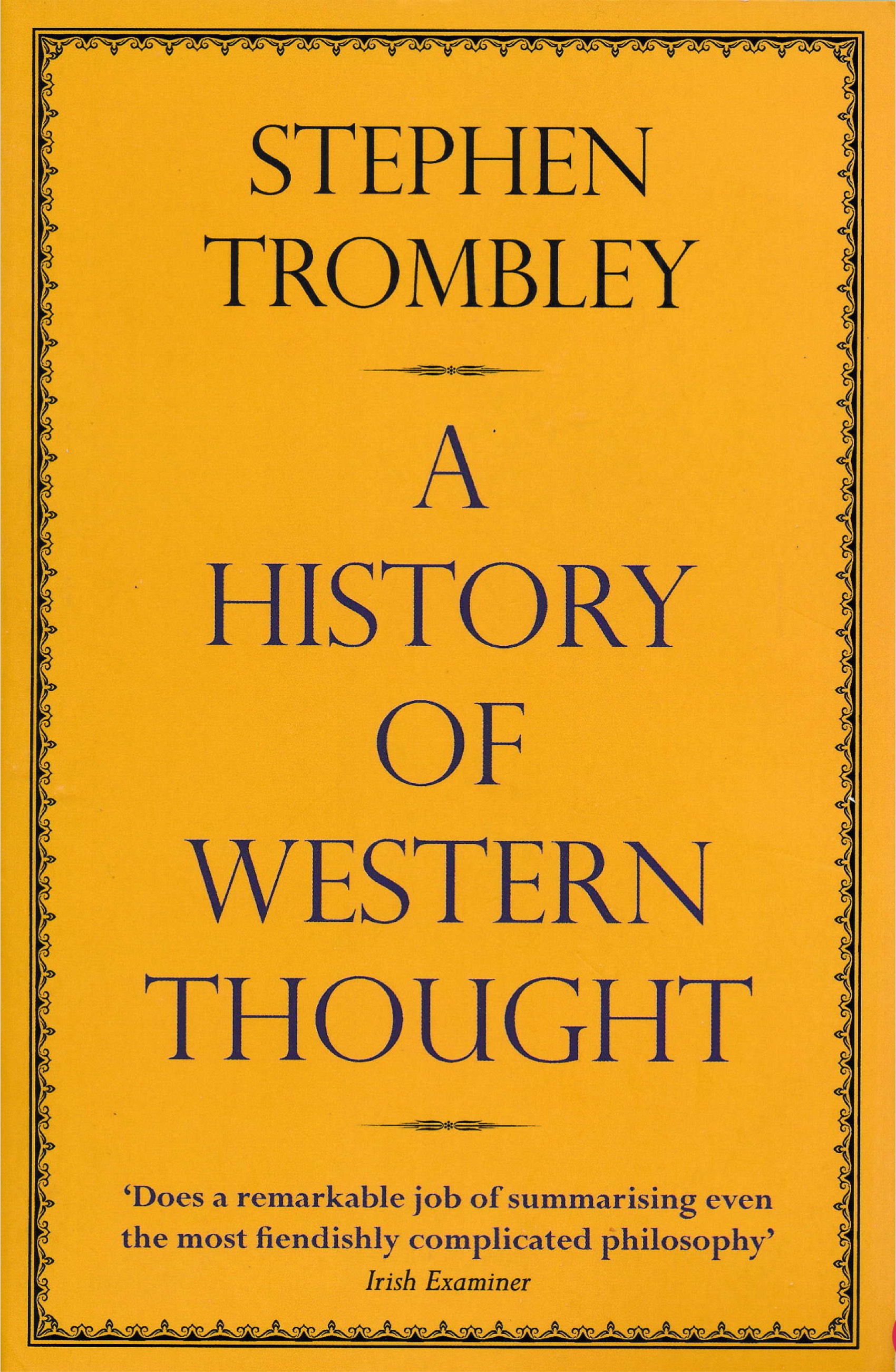A HISTORY OF WESTERN THOUGHT
Summary of A History of Western Thought by Stephen Trombley
Stephen Trombley’s A History of Western Thought is a comprehensive yet accessible exploration of 2,500 years of European philosophy, from Classical Antiquity to modern thinkers. The book provides an overview of key philosophical traditions, including Christian Scholasticism, Enlightenment rationalism, German idealism, existentialism, and analytic philosophy.
⸻
Key Themes and Structure
1. The Wisdom of the Ancients (6th Century BCE – 1st Century CE)
• Covers Presocratic philosophers such as Thales, Anaximander, Heraclitus, and Parmenides, who explored metaphysics, reality, and the origins of the universe.
• Socrates, Plato, and Aristotle laid the foundations for ethics, epistemology, and political philosophy.
• The transition from polytheistic Greek thought to monotheistic influences, as philosophy began interacting with religion.
2. Christianity Triumphant (1st – 16th Century CE)
• Examines the role of Christian theology in shaping Western thought, focusing on Augustine, Thomas Aquinas, and Scholasticism.
• Highlights the tension between faith and reason, particularly how medieval philosophy merged Aristotelian logic with Christian doctrine.
• The Renaissance saw a resurgence of humanism and scientific inquiry, challenging Church authority.
3. The Scientific Revolution and Enlightenment (16th – 18th Century)
• The rise of empirical science with thinkers like Galileo, Descartes, Newton, and Bacon, emphasizing observation and reason over religious dogma.
• Rationalism vs. Empiricism: Descartes’ “I think, therefore I am” vs. Locke’s emphasis on experience as the foundation of knowledge.
• The Enlightenment thinkers (Hume, Voltaire, Rousseau, Kant) promoted liberty, democracy, and individual rights, shaping modern political philosophy.
4. The Landscape of Modernity (19th – 21st Century)
• German Idealism: Kant, Hegel, and Schopenhauer redefined metaphysics, ethics, and self-consciousness.
• The rise of existentialism (Nietzsche, Kierkegaard, Sartre) emphasized human freedom, subjective experience, and the meaning of existence.
• Marxism, psychoanalysis, and scientific advancements (Marx, Freud, Darwin, Einstein) shaped modern social and psychological thought.
• 20th-century analytic philosophy (Wittgenstein, Russell, Moore) focused on language, logic, and scientific philosophy, contrasting with continental philosophy (Heidegger, Derrida).
⸻
Conclusion
The book provides an insightful and engaging journey through Western philosophy, balancing clarity with depth. Trombley masterfully simplifies complex ideas while maintaining intellectual rigor, making it a valuable resource for both beginners and seasoned philosophers.
